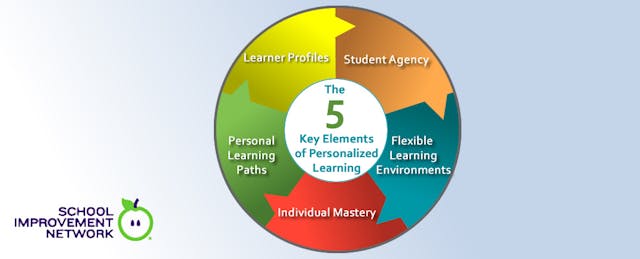The joy of being a teacher trainer is that you are regularly interacting with educators and continuously learning and the past 6 months, the learning has accelerated. I have witnessed many webinars and I have often seen participants, panelists sharing that they visualize a future where instruction for students is differentiated, individualized, or perhaps personalized? It all sounds so appealing and futuristic but a question perturbs me at all times, 'Are these instructions considered similar by all, or is the difference appreciated'?
Every policymaker dedicated to student development will desire all the directives to be incorporated within the curriculum and implemented by every school. So let's analyze the terms at length to see how it could be imparted within the curriculum.
A school follows a particular curriculum dictated by an education board which could be CISCE, CBSE, CAIE, respective State Boards, or IB. The syllabus for every subject, for every academic year, is shared by them and schools need to teach students accordingly. So, the content goals are clear at the onset along with the learning objectives for all irrespective of the type of school.
So let us take a simple chapter, 'Light' in Physics. In Std. VIII, the end purpose is, 'Students have mastered the concept of reflection and its applications in everyday life'. In a class of 30 students, 10 need visual learning, 5 need kinesthetic, 5 need auditory, 5 need social and interpersonal learning and 5 need solitary learning to comprehend the concepts. The question is 'How are you going to tailor your teaching to teach all types of learners?' - So you might begin with students participating in an activity, move to a presentation, have your students researching, have your students presenting, and so on. When you begin adapting the teaching strategies to suit your learner's learning styles, then it is differentiated learning.
Now while you are teaching, you keenly observe that in your class of 30 students, Amy has understood everything in advance and twiddling her thumbs, Mark is comfortable with the teaching and Megha is struggling to understand the concepts. You address these concerns by pacing out the lessons as per the student's need. You support Amy by offering more challenging questions, you support Megha by giving her assistance as per her strengths and shortcomings. Given time paucity, here, technology comes as huge encouragement as it can offer varied teaching tools, tweak questions, enhance concept learning, support mind mapping as per the child's understanding & performance, and elevate the confidence by beginning with simple and move to the complex. This type of instruction, when you are pacing the learning as per the student's needs is called Individualized learning. The book 'Characteristics of Individualized Instruction' by Floyd L. Coppedge sheds more light. The teacher has to take note of certain aspects of the students as shared in the image before pacing her teaching for the respective student.
In a span of teaching beyond 20 years, what I have truly desired is designing curricula as per the interests of the students taking their support and inputs at every step. So, while teaching Physics, if some students like Electromagnetism then have them go beyond the curricula, design their learning goals, experiment, research, and polish their skills, if some are interested in General physics then design the learning as per their aptitude. This type of learning is beyond the prescribed curricula giving all powers to the teachers to create instruction driven by the enthusiasm and concept grasping of the student. Personalized instruction as per James W. Keefe and John M. Jenkins is the effort on the part of a school to take into account individual student characteristics and needs, and flexible instructional practices, in organizing the learning environment. Teachers committed to personalizing instruction help their students develop personal learning plans, assist in diagnosing their cognitive strengths and weaknesses and other style characteristics, help adapt the learning environment and instruction to learner needs and interests, and mentor authentic and reflective learning experiences for their students. The article contains more inputs.
http://lecforum.org/publications/Jenkins_Keefe_KAPPAN_Article_1.htm
To achieve personalized instruction, there are many key elements to consider. https://www.edsurge.com/news/2015-04-01-five-key-elements-of-personalized-learning.
Education appeals that no child is left behind and receives what he seeks.
I do agree that we face many challenges. We have huge classrooms, tight schedules, approximate 25 to 30 teaching periods per week, and vast syllabuses to complete but this COVID times has shown me that teachers all over the world love their students and overnight have transformed their classrooms to connect with the students. Where technology might have been a challenge for some, it is now one's best friend, and over these past few months, we have arduously mastered it. Where borders initially separated us, today we are all ONE brought together by a common concern. In some aspects we are similar, in some we are different, we definitely are connected to the roots but our wings soar to reach the skies and with technology and Artificial Intelligence as our common friends, all learning instructions will soon be possible for one and all. Time to learn, unlearn, and relearn.



